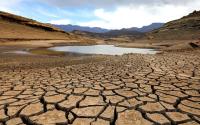11 March 2007Will Hutton
Of the many noxious legacies of Mrs Thatcher, perhaps the most poisonous is the idea that somehow the British are not European. She taught her party, the media and a large part of the country that any European initiative was necessarily hostile to our interests and originated in a mindset of which we are not part. The British may be geographically European; culturally and politically, we are different.
It was nonsense. This weekend, the European Union has struck a deal which is arguably the most important since its foundation 50 years ago - which was how some in Brussels described it to me - and should help persuade even the most Eurosceptic curmudgeon that the EU has crucially important uses. German Chancellor Angela Merkel, emerging as a European politician in the great tradition of Adenauer, Brandt, Delors, Mitterand and Kohl, has used the current German presidency of the EU to mastermind an epic commitment on tackling climate change and energy security.
The 27-nation EU has committed itself to lower its carbon dioxide emissions by 20 per cent by 2020 from their 1990 level, the chief mechanism being an increase in the use of so-called renewables - water, air, tidal power and biofuels. Twenty per cent of its energy needs, it says, will come from such sources, while allowing some flexibility for countries such as France, which is dependent on nuclear power, to count that as part of their contribution to reducing the Continent's carbon footprint. Nuclear power, clean coal and renewables are vital responses to weaning the Continent off its dependence on Middle Eastern oil and Russian gas.
It is a commitment backed up with detailed action. After 2010, every new power station in Europe will have to have 'carbon capture and storage technology', virtually eliminating carbon emissions. Carbon emissions from cars are to be radically reduced starting from the beginning of next year. Farmers now compensated for leaving land idle under set-aside are, instead, to grow plants for biofuel which is to constitute 10 per cent of all petrol by 2020. There will be new bite in the European Emissions Trading Scheme as tough, new limits for carbon emissions are set; as the carbon price rises, so there will be a further incentive to economise on the use of fossil fuels.
Of course there are problems. Renewable energy is expensive and itself poses environmental dilemmas. Wind farms disturb natural habitats; tidal barriers form other barriers to natural flows of marine life; mass biofuel farming in areas such as the Amazon could accelerate the destruction of the rain forest. European business will complain bitterly that it is being regulated and suffering higher energy costs than American, Chinese and Indian competitors, who can carry on using cheaper fossil fuels with impunity.
But that is the point. They can't. It is obvious that climate change is both a reality and that scientific evidence points to it being manmade. We have to burn less fossil fuel and we have to do it now.
What has cramped any response is what Environment Secretary David Miliband has called the 'after you, Claude' syndrome. Any one country has been frightened that if it takes a bold and costly line by leading, then others will take advantage of it. Step forward the EU, some adroit political leadership and a growing intellectual and cultural conviction that there has to be change and the 'after you' blockage has been decisively broken.
The EU was founded to try to deliver collective European benefits that no one country could achieve alone. The forerunner of the European Economic Community was the European Coal and Steel Community, established to maximise the signatories' access to each other's coal deposits and steel markets. Today, carbon remains centre stage, in a diametrically different way.
The catalyst has been Merkel. Environment Minister under Chancellor Kohl and one of the architects of Kyoto, she has used Germany's pivotal role in the EU to force the necessary compromises. At one time, it looked as though a coalition of the French and east Europeans was going to wreck the deal; she detached the east Europeans by conceding that they could take longer to hit the targets rather than abandon their inherited coal-fired power stations.
She then offered Chirac the face-saving formula of being flexible over nuclear power and allowed the French a lower target for renewables. That meant she then had to square the Austrians and her SPD grand coalition partners, adamantly opposed to nuclear power. But the hint that Germany would go for a 40 per cent target for renewables bought off the SPD and left the Austrians without any leverage.
Blair has been her right-hand man throughout, willing to commit Britain to tough targets and standards. For example, Miliband is set to introduce a climate change bill, which will bind Britain to cutting carbon emissions by 60 per cent by 2050. David Cameron's green Tories can hardly complain, nor can the Lib Dems. Indeed, the EU deal, making it the vehicle for serious climate change, puts the Tories on the spot. Their sole political ally in Europe, Czech conservatives, even debate whether climate change exists. Which is it to be? Euroscepticism or being serious about climate change?
The deal matters globally. In December, the UN will convene the key meeting in Indonesia to begin the discussions about what treaty will succeed Kyoto. It needs to be tougher on targets for reducing greenhouse gas emissions and it needs to include the Indians, Chinese and Americans. Anything less and the world is at risk. With the EU agreement, there is a genuine chance the logjam could be broken; the other countries know that the Europeans are going ahead - they only have to follow. If they do, the EU has promised to lift its own targets by another 10 per cent.
For pro-Europeans like me, there has been little to cheer about over the last 10 years. But, extraordinarily, the EU is recovering its sense of purpose. Who knows? It may even soon be safe for Britain's political class to start believing that there are votes in being pro-European.
http://observer.guardian.co.uk/print/0,,329741726-102273,00.html






